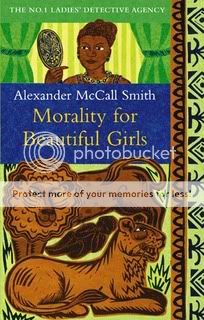Originally published in June 2004, on my original 52 Books blog.
Author: Alexander McCall Smith
Year published: 2001
Genre: Detective story, literature
Where got: Public library
It’s easy to imagine you’re in Africa when you’re sweating away - the sun has been shining all day and the temperature inside my apartment is around 28 °C and feels hotter.
The story:
The detective agency is having financial difficulties and to save money Precious has moved the office to her fiancé’s office. Mr. Matekoni is not feeling well, but refuses to see a doctor, and Precious has to go away for a few days to find out if a client’s sister-in-law is really trying to poison her husband. Meanwhile, her assistant/secretary, Mma Makutsi, takes over both the agency and the garage and runs both with efficiency. While Precious is away, she is handed a case to solve, which relates to the book’s title.
Technique and plot:
As with the other two books, the prose is beautiful in its simplicity, even poetic at times, and flows easily. These books just keep getting better, and I have begun to feel that Precious and Mr. Matekoni are real people and that Smith has merely been writing down their story.
Rating:
A third, brilliant installation in the saga of Precious Ramotswe and her detective agency. 5 stars.

Comments